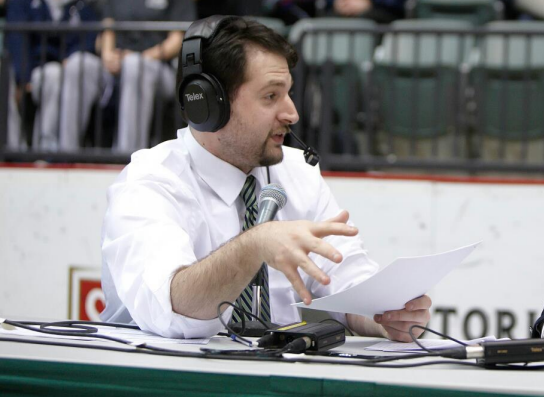By Beau O’Neill (Contributor) – Email
Print Edition: September 19, 2012
Aaron Levy is the station manager at CIVL, UFV’s student-run radio station currently located on the Abbotsford campus. He has seen CIVL grow from humble beginnings to broadcasting both online and on the FM frequency it calls home today.
What is CIVL?
CIVL is a non-profit society based at UFV in Abbotsford with a broadcasting license from the Canadian Radio-television and Telecommunications Commission (CRTC) and Industry Canada, which is regulated and mandated such that we serve the Fraser Valley, its communities and UFV.
In doing so, we recruit volunteers to produce programming that is meaningful to them and is not already accessible on commercial airwaves in the Fraser Valley. We are the only campus community radio station in the Fraser Valley.
How long has CIVL been around?
CIVL was started by the Student Union Society as a committee in 2003. In 2005 CIVL became its own non-profit corporation. That’s also the year that students voted to fund us, $3 a semester, in our referendum. In 2008 we started broadcasting on the internet, and podcasting [on www.civl.ca]. In 2010, in September, we started broadcasting on FM radio for the first time [on 101.7 FM].
And finally, in 2012 we finally received our permanent broadcast certificate, which allowed us to start broadcasting … and we’ve been broadcasting at 520 watts since February 14, 2012.
How many programs/what types of programming do you have?
We have between 50 and 60 different programs, individual programs. There are four basic classifications we have: music, spoken word, syndicated and multicultural shows.
And that’s all done by volunteers?
Yes. About 50 per cent of our programming is done by students, which is a good average for a station. For example, at UBC they were around 10–15 per cent for a while.
What are the differences between commercial radio and campus community radio, besides the fact that you don’t play what they play?
It’s basically a three-fold answer. One: we’re all volunteer-based except for me, the station manager, and three work studies. So no one is getting paid for what they’re doing on air, whereas everybody at a commercial station is getting paid.
Two: they are focused on advertising. The commercial radio industry, every single station, their entire function is to turn the highest profit from selling advertising. That’s why they’re licensed. From the CRTC’s perspective, they are a GDP developer. The CRTC will not approve a station if it will encroach on another station’s ability to serve a certain demographic and make money that way. They make sure you’re broadcasting a different format, that you’re going after a different demographic, that you’re relying on different resources to make your money.
That’s not to say there aren’t great journalists or DJs who do great radio, but whoever owns those [commercial stations] would not be running those stations if they weren’t running a profit.
The third difference is that we ensure that our funding remains autonomous to the content and programming that we do. On any commercial radio station, if one of your advertisers is McDonald’s, and one of the people working on the air says, “I hate McDonald’s”, that person’s going to get in some trouble. Not the case with us. I don’t tell them what to play. They play what they want to play, because they put the work in and made the proposals.
Is there any censorship?
There are limits to what we are allowed to do. But it’s only regulatory. We can’t broadcast illegal content, we can’t commit slander on the air. We can’t broadcast content that might reasonably offend our listenership.
So no Rush Limbaugh?
… It’s about knowing your audience.
Does CIVL do any activities outside of regular broadcasting?
One of our volunteers is a fellow named Steve O’Shea, and he’s in a band called You Say Party. They’re a local Abbotsford band. Steve O’Shea says this: “Support your local scene, ‘cause it’s the only one you have.”
I see this as a very important function of CIVL. Whether it means doing sound, stage management, or providing sound at [a university event] and playing people’s requests and making announcements, or just organizing and hosting local shows that students and bands and members of the community can enjoy and get out to, that’s an important part of what we do.
It’s just helping people do what they want to do, creating an opportunity for people in the community to find out about music, see local music, and for local musicians to get out there and show their stuff.
Anything coming up?
UFV’s Marketing and Communications department is putting together a concert on the 20th – the Zolas will be playing, and the Matinee will be playing, and that’s in Chilliwack at the CEP campus. It’s free.
Also, every Friday and Saturday night at Cheers bar and grill in Abbotsford, for free, you can come see CIVL DJs and you can get discounts on food – $2 burger and fries.
And on October 13, Arrabio, a hardcore band from the Caribbean, will be playing here.
Thanks, Aaron – it’s been informative.
You’re welcome, but, unfortunately, I can’t say the same.



